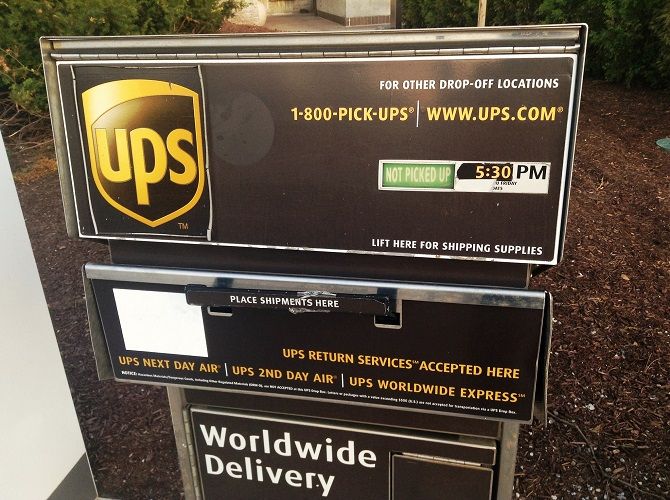Cybercriminals never really tire of the tried-and-tested scams; however, they advance their techniques and try out new iterations of classic scams. They must, in order to stay ahead of the numerous warnings issues by security companies and sites.
Millions are tricked every year, and the scams of 2017 will live on into 2018 and beyond.
Here are just a few of the latest internet scams you need to protect yourself against.
1. The "Goods Not Received" Scam
You order an item. You wait for it. It doesn't turn up. The seller maintains they have sent it. But it never arrives.
Yes, it's that simple, and I'm sure you or someone you know has had that happen. Sometimes it's genuine: only a relatively small number of sellers have malicious intent. But occasionally, it's a petty crime.
Of course, if you raise an issue within a specific time limit, the seller has to, by law, either replace or refund the item.
The scammer will endeavour to delay any official complaints until the previously agreed period -- typically 30 days or within a timeframe agreed between you and the seller in the case of pre-orders. Fortunately, if you pay by PayPal, you have a 180-day window (with some exceptions) to raise any problems.
2. Sending the Goods
The above scam works both ways, however.
If you're a seller reading this, you probably are honest in your intentions. That doesn't mean the recipient is.
Someone buys an item. You send it. You then receive a message saying the package never arrived.
As before, it might be a genuine issue, or perhaps someone is trying to get their money back despite having received the product. And you have to offer either that or a replacement under the consumers' rights.
It doesn't matter if you're selling as a third-party on Amazon or through an auction site, although the latter can be particularly troublesome. This can happen to anyone, so don't feel singled out.
The key tip here is to get proof of postage. Ask for a receipt when sending parcels, or if booking online, print off and keep any confirmation emails. This is essential because you can then raise the problem with the delivery firm, and in some cases, get money back.
Also consider getting it signed for. This is especially important if the item you're sending has a high price-point. That way, you have additional proof that the package has been delivered. It could be a simple mistake: it might've been given to a neighbor!
3. Advance Fee Fraud
The "Goods Not Received" scam must work in many cases because this is another variant iteration of it.
Namely, a seller will encourage you to take discussions to a different platform, away from official marketplaces. They might tell you that they can give you a discount. It's tempting. You start exchanging messages via email, SMS, or even by phone. They'll argue that eBay and its ilk take a percentage of the fees, which is what's driven the price up. You might consider this a fair argument.
But to save money, they'll need you to pay for an item before you receive it. And guess what? It won't arrive.
This is especially concerning if they ask for a transfer of funds between bank accounts. Never take part in a wire transfer because you essentially concede some rights and pretty much guarantee you won't get any money back. If you must, PayPal is a more secure way of doing things. But here's a better tip...
Say no.
Easy, isn't it? Most genuine sellers won't ask you to do it, so be suspicious of those who do. And just say no. You're otherwise putting yourself at risk of being scammed. Is it worth saving a couple of bucks?
4. Fake Shipping Information
Our shopping habits are moving increasingly from brick-and-mortar stores to online. As such, our inboxes are frequently filled up with order confirmations and shipping information.
But not all those emails are real. Some are fraudulent claims purporting to be from major retailers or delivery firms.
Personally Identifiable Information (PII), such as your name and date of birth, is pretty easy for scammers to get hold of. Email addresses, for example, can be mined and sold on the dark web. This may result in a master list of names to send fake messages to.
Scammers send emails out en masse claiming to have problems with an order or delivery. They may say you weren't in when they tried to deliver a parcel, or public holidays mean a change in timeslot. Such messages will likely have a spoof address and a subject line reading "Re: Shipping Information" (or similar).
The email will include a link to a site where you can supposedly reschedule or view orders. Of course, you're instead becoming a victim of phishing.
You might download ransomware or enter login details, surrendering passwords and/or banking information. Thousands fall for this every single day.
How do you combat this? Just don't click on any links in emails.
Contact the delivery firm directly if you think this might be real. Don't go through email but instead via contact details on an official site, opened in a separate tab.
5. Netflix Suspension
Netflix has more than 110 million subscribers. Of course users are going to be massive targets!
You probably receive emails from the streaming service, alerting you to new content and occasional price changes. But the latest related scam claims your account has been suspended. To resolve the problem, just click on the link.
These phishing scams are far from new. Fake emails supposedly from Netflix aren't even new.
However, what marks this one out as something different is firstly how many have received the mail (the clear majority of users), and secondly how authentic it looks. Messages are typically personalized, and clicking on the link takes you to what appears to be a real landing page. This displays some of the latest shows that may be recommended to you otherwise, including Netflix Originals like The Crown.
It encourages you to input your personal information once more, including your credit card details. By doing so, you're handing banking data over to cybercriminals.
Realistically, the only times your account might be suspended is if your card reaches its expiration date (which is easy enough to check) or if you do it yourself. Maybe you're going on vacation for a while, and don't want to be charged for a service you won't be using. Fortunately, you can cancel your account, and viewing preferences will be kept ready to restart your membership within 10 months.
Let's drum this important note into your head: do not click on links in emails.
If you are concerned about your account, sign in on a different device or tab. You'll see any problems.
6. Vacant Vacation
You're looking for accommodation for when you go on vacation. In 2017, nearly 37 million U.S. residents used Airbnb to find a room. By 2021, that estimate is set to rise to more than 60 million. That's Americans alone. Cybercriminals know this gives them an incredible opportunity.
And there are so many variations of this, including ones that encapsulate Advanced Fee Fraud, and fake links in messages.
Most boil down to finding somewhere to stay, only for the property owner to find a problem: either they want a substantial deposit beforehand, or discover that the dates selected are already booked. In the case of the latter, they could tell you they have a similar property in a nearby location. They'll send you an email with a link in to check it out.
No surprises here. It leads to a fake site. It might look exactly like Airbnb, but scammers have an uncanny ability to duplicate a real site. Once more, you're probably downloading malware.
Again, the important thing here is not to deviate from official infrastructure. Once in Airbnb, search within the site. Do not click on links within private messages. In fact, you should learn to spot the signs of fraudulent mail. They generally come in handy.
Often, when you pay in advance, the accommodation doesn't exist or is owned by someone else, so try an image search. This might show you the same property, albeit from a different destination/owner.
2018 and Beyond?
Suffice to say, it's not been a great year for security and privacy.
There was the Equifax breach, which is one of the biggest leaks in U.S. history. Over 700 million email addresses were compromised by the Onliner Spambot. The massive threat against net neutrality. These are just the tip of the iceberg. It's enough to make anyone feel overwhelmed.
Sure, governments will try to infringe on your rights, and scammers will endeavour to squeeze you for all the cash they can. But it's not as bad as it all sounds. You just need to keep a level head and take sensible precautions.
How do you think fraudsters will adapt in 2018? What's been your biggest security concern this past year? And what tips can you share for protecting yourself? Let us know below.





